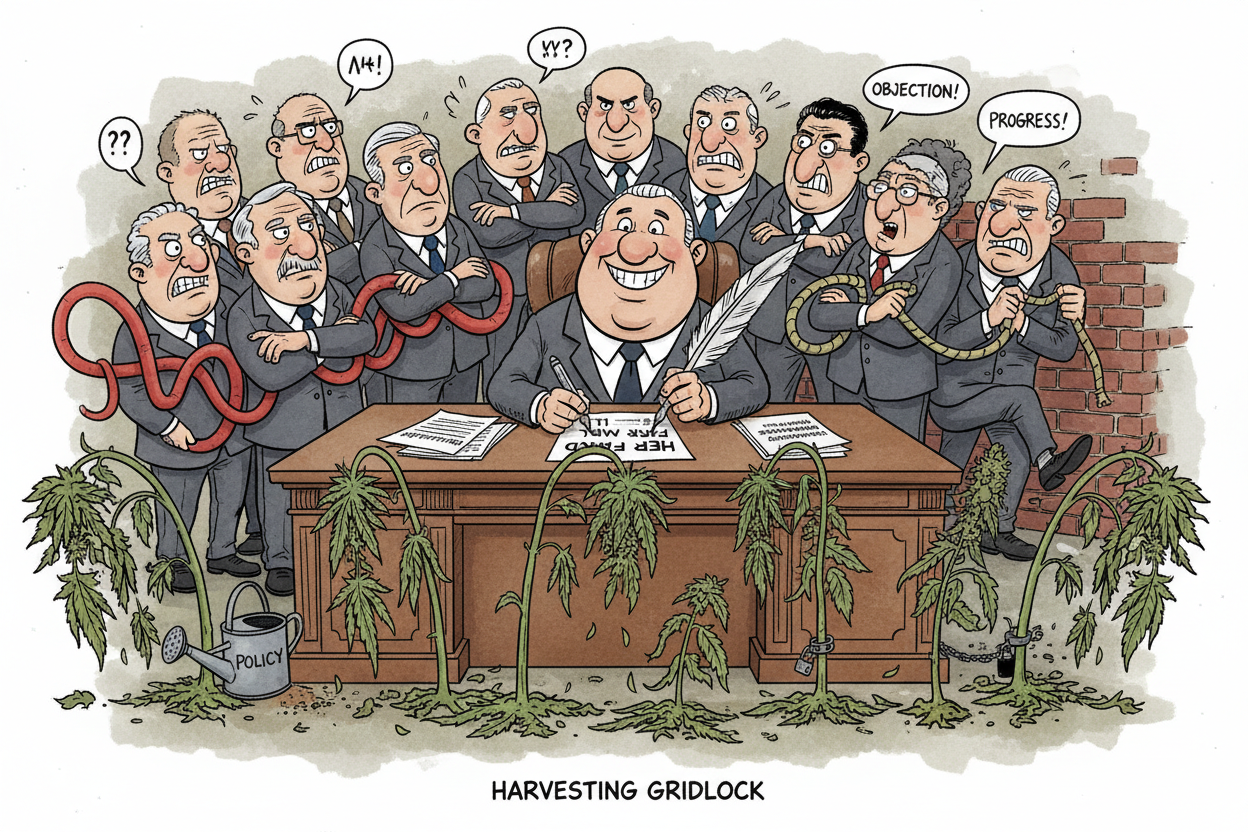The 4th Circuit Court has issued a ruling that reverberates through the cannabis community, declaring all hemp-derived cannabinoids legal. This decision marks a significant milestone for cannabis enthusiasts, legal professionals, and health and wellness consumers alike. But what does this mean for the future of hemp-derived products and the broader cannabis industry?
In this blog post, we will explore the implications of this ruling, explain the difference between hemp-derived and marijuana-derived cannabinoids, and examine the legal and health impacts. By the end, you'll have a clear understanding of how this ruling reshapes the landscape of cannabis legality.
Significance of the Ruling for the Cannabis Industry
The 4th Circuit Court's ruling has profound implications for various stakeholders in the cannabis industry. For hemp farmers, this ruling provides much-needed clarity and legitimacy, allowing them to cultivate hemp-derived cannabinoids without fear of legal repercussions. This is great news for those looking to expand their operations and invest in hemp farming.
For consumers, the ruling opens up a world of possibilities. Hemp-derived products, particularly cannabinoids like CBD and THC-O, are now more accessible. This means more options on the market for those seeking natural alternatives for wellness and healing. The surge in availability is likely to drive innovation and quality within the industry.
For the cannabis industry as a whole, this ruling signifies a step towards broader acceptance and integration into mainstream markets. Legal professionals will need to stay on top of evolving regulations to guide their clients effectively through this new legal landscape.
Hemp-Derived vs. Marijuana-Derived Cannabinoids
To fully understand the impact of this ruling, it's essential to distinguish between hemp-derived and marijuana-derived cannabinoids. Both come from the Cannabis sativa plant, but they differ significantly in their chemical composition and legal status.
Hemp-derived cannabinoids are extracted from hemp plants, which contain less than 0.3% THC by dry weight. This low THC content means hemp products are non-psychoactive and do not induce the "high" associated with marijuana. Common hemp-derived cannabinoids include CBD (cannabidiol) and THC-O (tetrahydrocannabinol acetate).
Marijuana-derived cannabinoids, on the other hand, come from marijuana plants that typically contain higher levels of THC. This makes them psychoactive and subject to stricter regulations. The distinction is crucial for consumers and businesses navigating the legal landscape.
Understanding these differences helps clarify why the 4th Circuit Court's ruling is so significant. By legalizing hemp-derived cannabinoids, the court has created a clear path for the development and distribution of non-psychoactive cannabis products.
Legal Implications and Potential Challenges
While the 4th Circuit Court's ruling is a landmark decision, it also presents new legal challenges and considerations. One major implication is the need for updated regulations at both federal and state levels. Legal professionals will need to help clients understand how this ruling interacts with existing laws and what it means for compliance.
Another potential challenge is enforcement. With hemp-derived cannabinoids now legal, ensuring that products meet the required standards and THC thresholds becomes even more critical. This could lead to increased scrutiny and testing, which businesses must be prepared to handle.
At the same time, the ruling could spur further legal battles. Opponents of cannabis legalization might challenge the decision, seeking to impose stricter regulations or reverse the ruling altogether. Staying informed and proactive will be key for those invested in the hemp and cannabis industries.
Impact on Health and Wellness
The legalization of hemp-derived cannabinoids has significant implications for the health and wellness sector. With easier access to products like CBD and THC-O, consumers can explore natural remedies for a variety of conditions, from chronic pain to anxiety.
Hemp-derived cannabinoids are known for their therapeutic properties. CBD, for example, is widely recognized for its anti-inflammatory and analgesic effects. It has become a popular ingredient in health and wellness products, ranging from oils and tinctures to edibles and topicals.
With the 4th Circuit Court's ruling, we can expect an influx of new hemp-derived cannabinoid products on the market. This will likely drive innovation, with companies developing novel formulations and delivery methods to meet consumer demand. For health and wellness enthusiasts, this ruling represents an opportunity to explore a broader range of natural healing options.
Federal and State Law Analysis
The 4th Circuit Court's decision also has broad implications for federal and state laws. Federally, the ruling aligns with the 2018 Farm Bill, which legalized hemp and hemp-derived products containing less than 0.3% THC. However, the specific legalization of all hemp-derived cannabinoids adds a layer of clarity and reinforces the legality of these products.
At the state level, the situation is more complex. States have varying regulations regarding cannabis and hemp products. Some states may need to amend their laws to align with the federal ruling, while others might impose additional restrictions. Legal professionals must stay vigilant, helping clients navigate this patchwork of regulations.
For businesses operating in multiple states, understanding these differences is crucial. Compliance strategies must be tailored to each jurisdiction to ensure products are legal and meet all regulatory requirements.
Future Outlook for the Industry and Consumers
Looking ahead, the 4th Circuit Court's ruling sets the stage for significant growth and development within the hemp and cannabis industries. For businesses, this ruling provides a stable foundation on which to build and expand operations. Investment in hemp cultivation, processing, and product development is likely to increase as confidence in the legal status of hemp-derived cannabinoids grows.
For consumers, the ruling means greater access to a variety of hemp-derived products. We can expect to see more choices in the market, with products tailored to specific health and wellness needs. This increased availability is likely to drive competition, leading to higher quality and more innovative offerings.
Overall, the future looks bright for those involved in or interested in the hemp and cannabis industries. This ruling represents a significant step towards broader acceptance and integration of hemp-derived cannabinoids into mainstream markets.
The Nova Hemp vs. Virginia Case
An important case to watch in the wake of the 4th Circuit Court's ruling is the Northern Virginia Hemp and Agriculture vs. The Commonwealth of Virginia case. This appeal could further clarify and shape the legal landscape for hemp-derived cannabinoids. We are currently awaiting a decision from the 4th Circuit Court, which will likely have far-reaching implications regarding Virginias "total THC law".
The outcome of this case could influence how states regulate hemp-derived products and provide additional guidance for businesses and consumers. Staying informed about this case and its developments is essential for those invested in the hemp and cannabis industries.
Key Takeaways and Implications
In summary, the 4th Circuit Court's ruling declaring all hemp-derived cannabinoids legal is a landmark decision with wide-reaching implications. For the cannabis industry, it provides clarity and legitimacy, encouraging growth and investment. For consumers, it means greater access to a variety of hemp-derived products, particularly in the health and wellness sector.
Legal professionals must stay informed and proactive, helping clients navigate the evolving legal landscape. Businesses must focus on compliance and quality to thrive in this new environment. And consumers can look forward to exploring a broader range of natural healing options.
This ruling marks a significant step towards the broader acceptance and integration of hemp-derived cannabinoids into mainstream markets. The future looks bright for the hemp and cannabis industries, and we are excited to see how this ruling will shape the landscape moving forward.






Share:
Can you smoke thca isolate powder?
What's the Difference Between THC and THCa